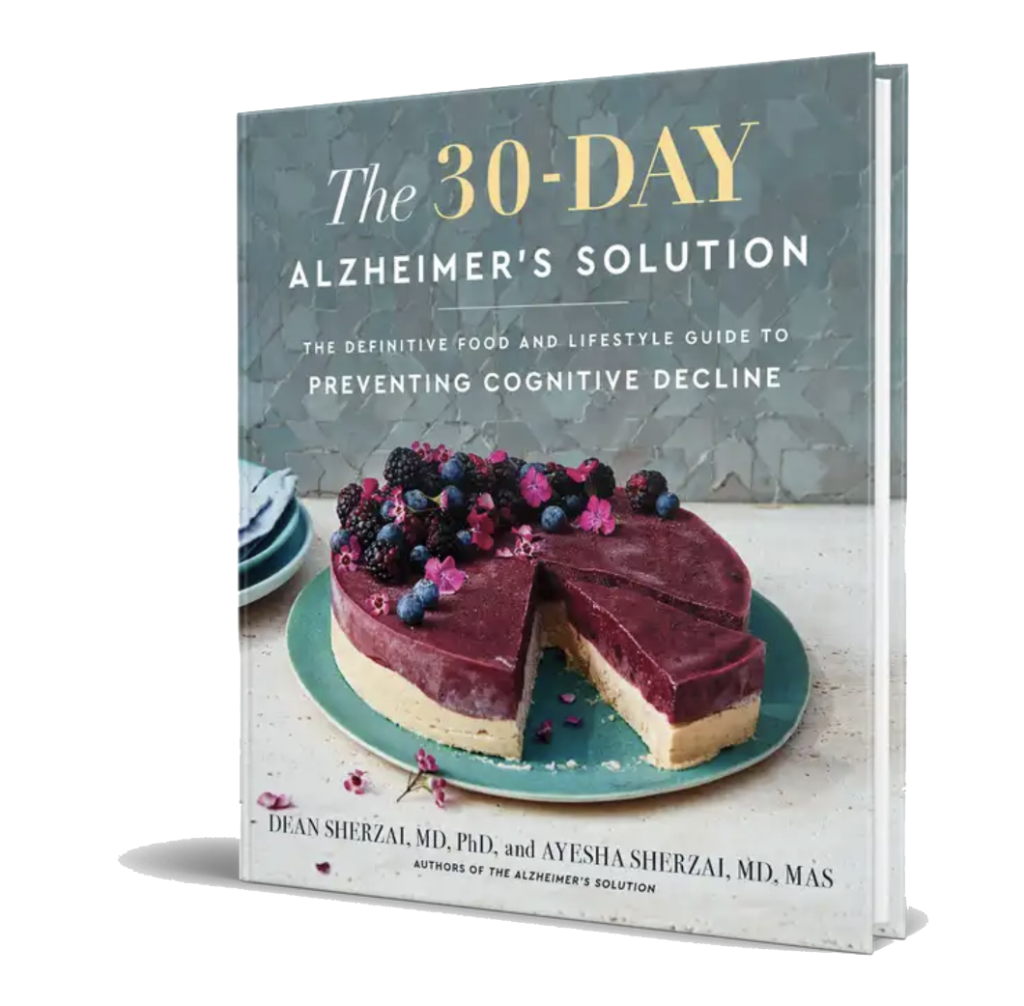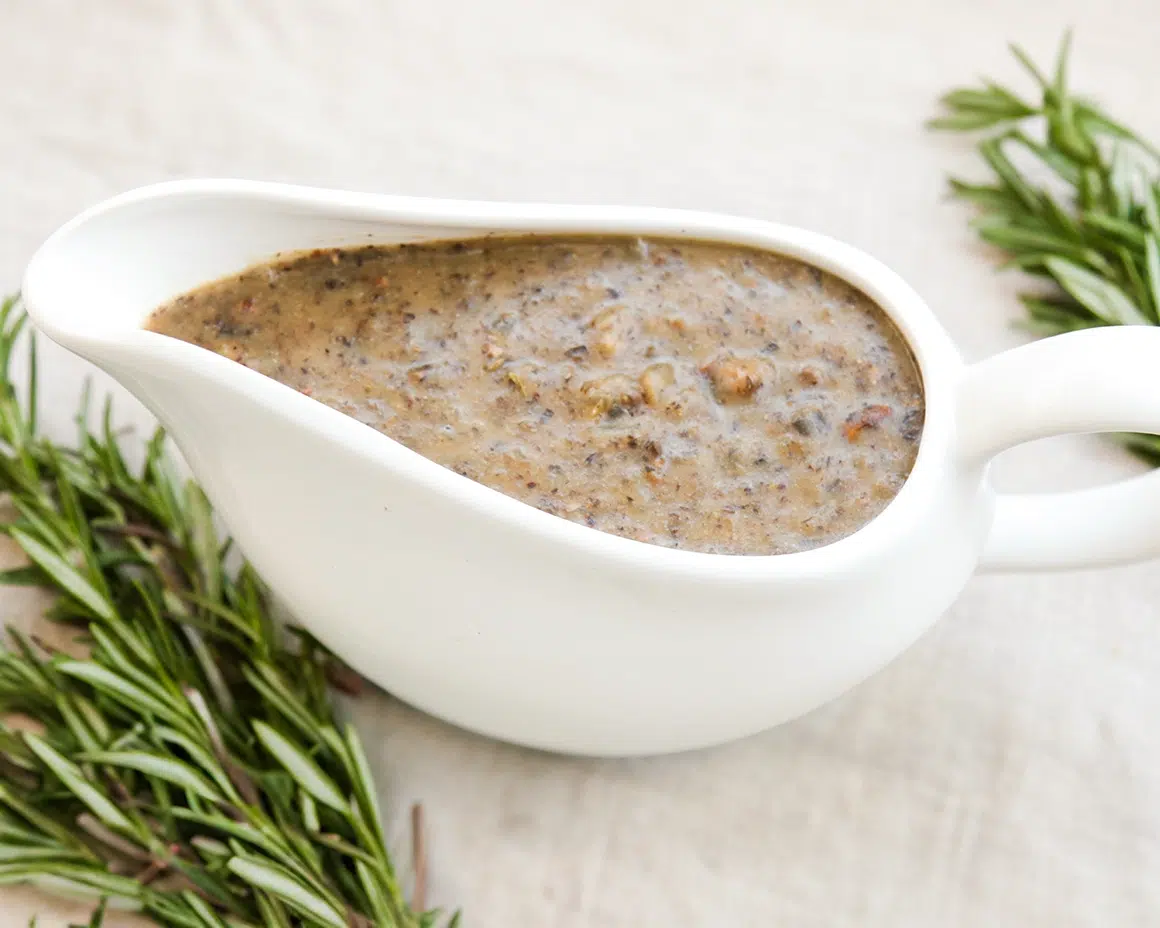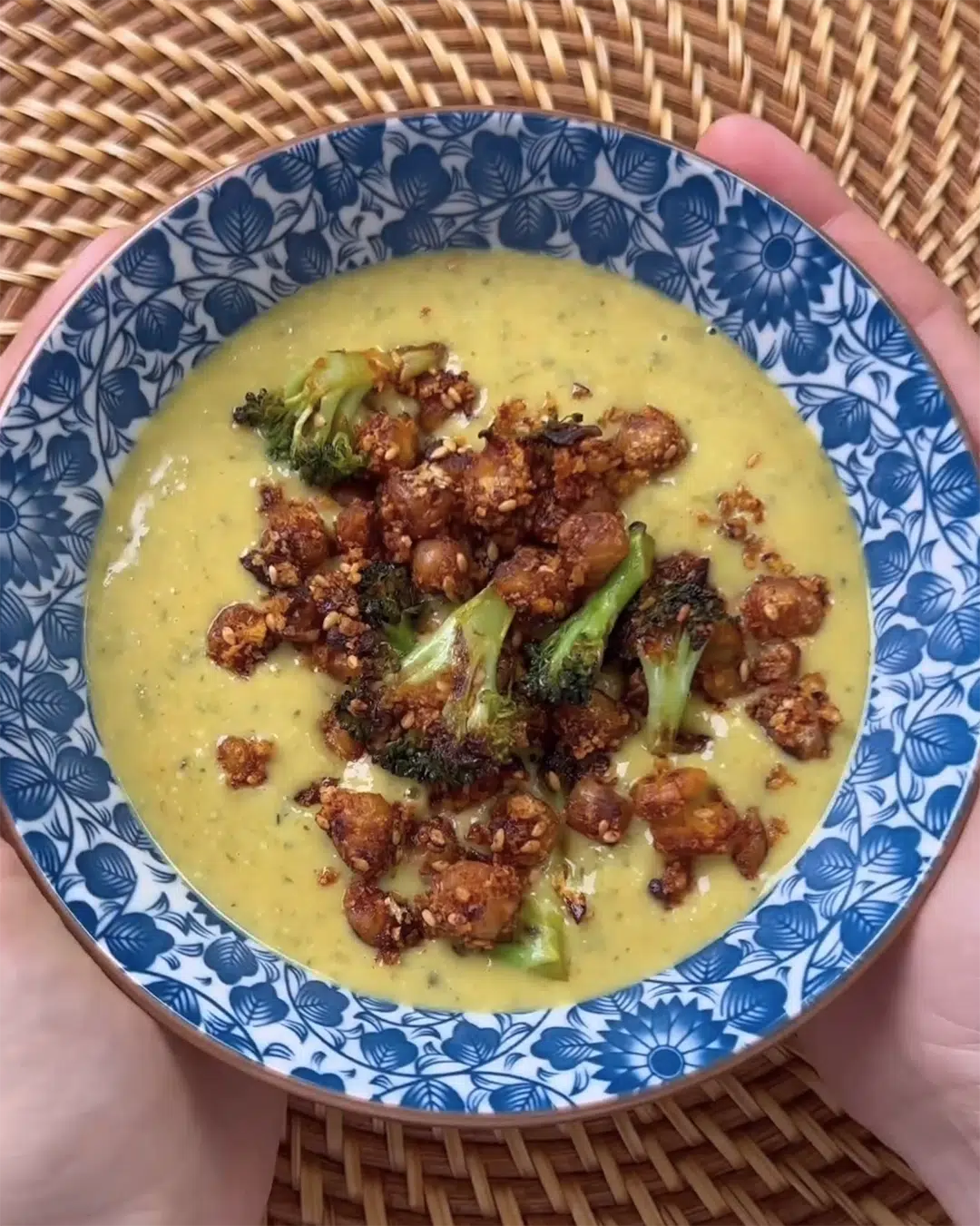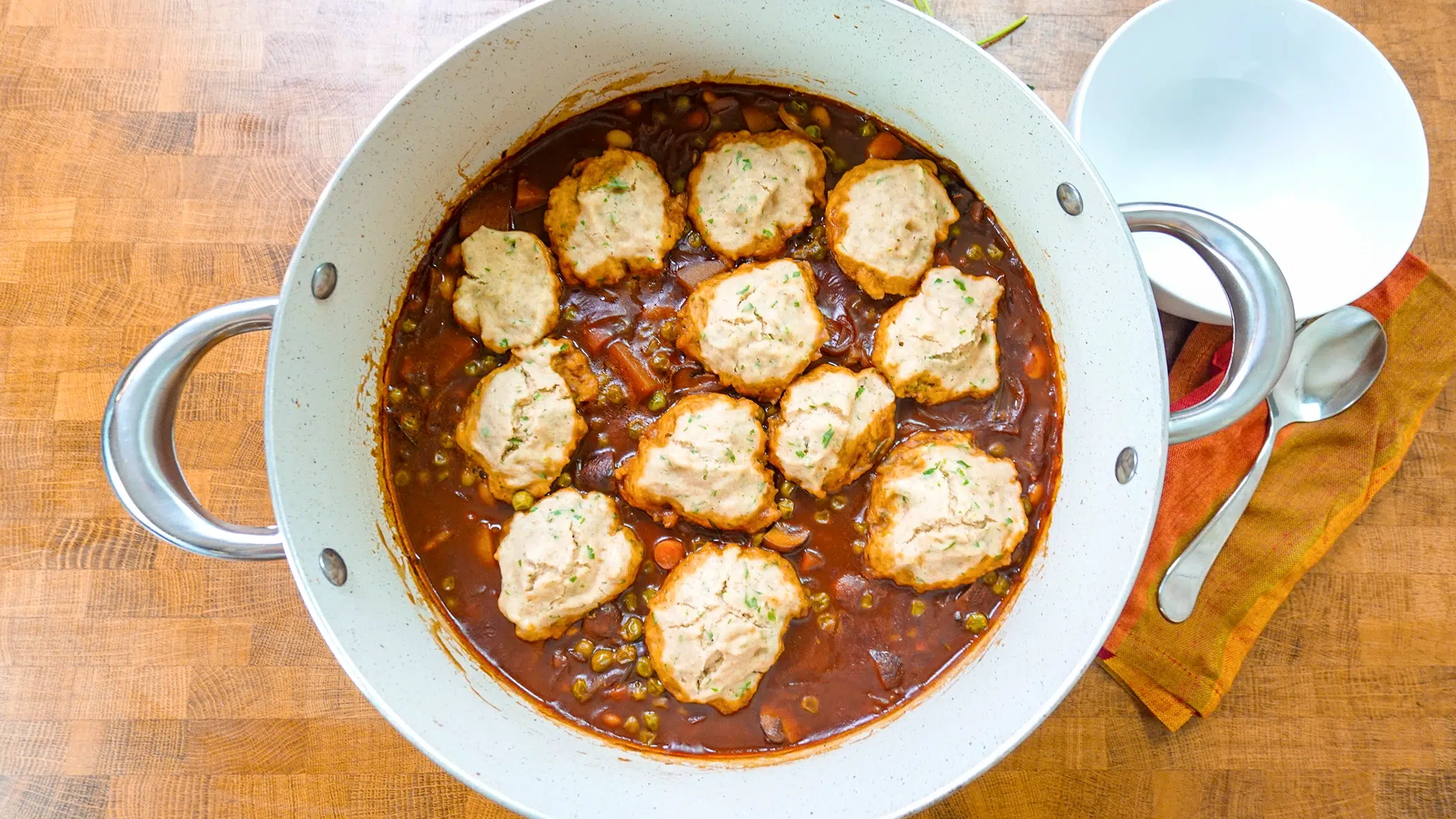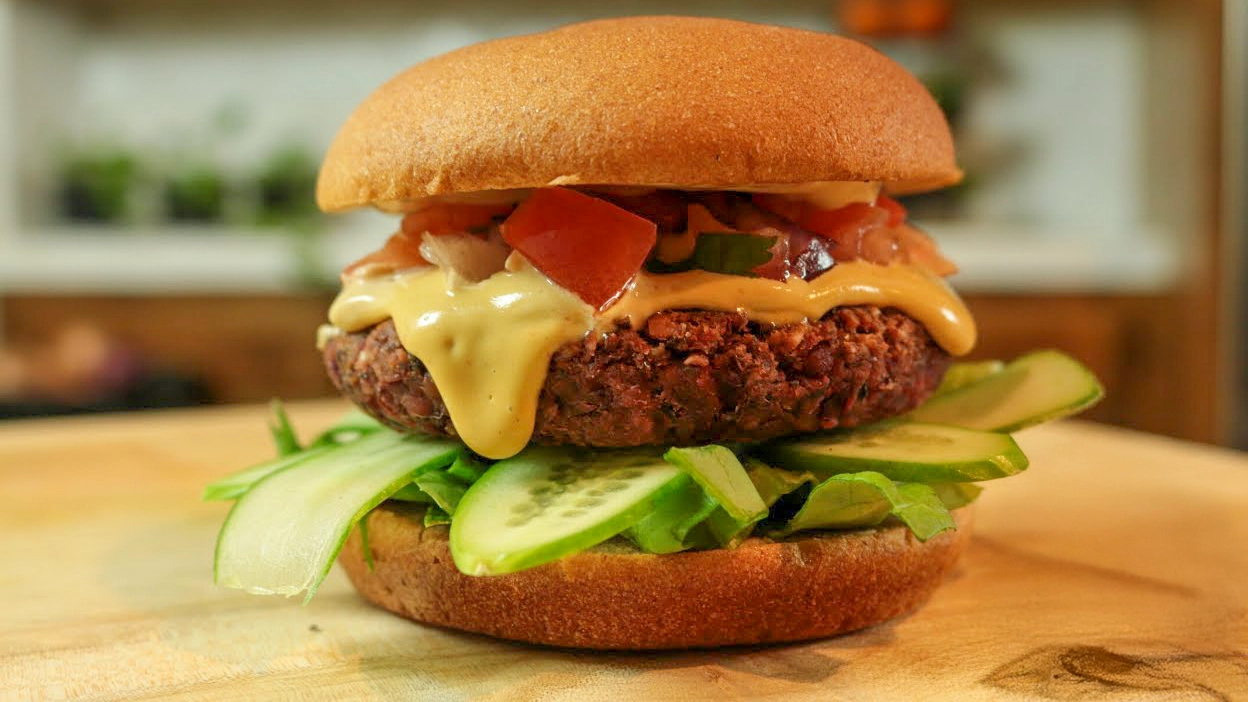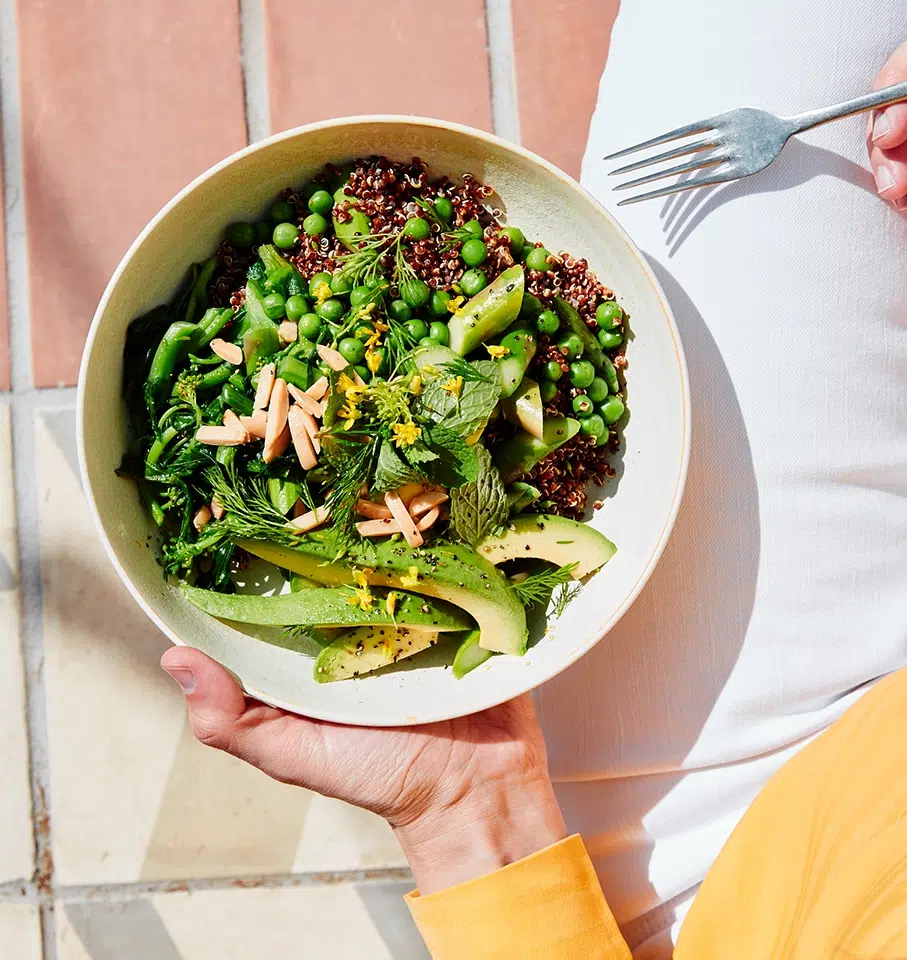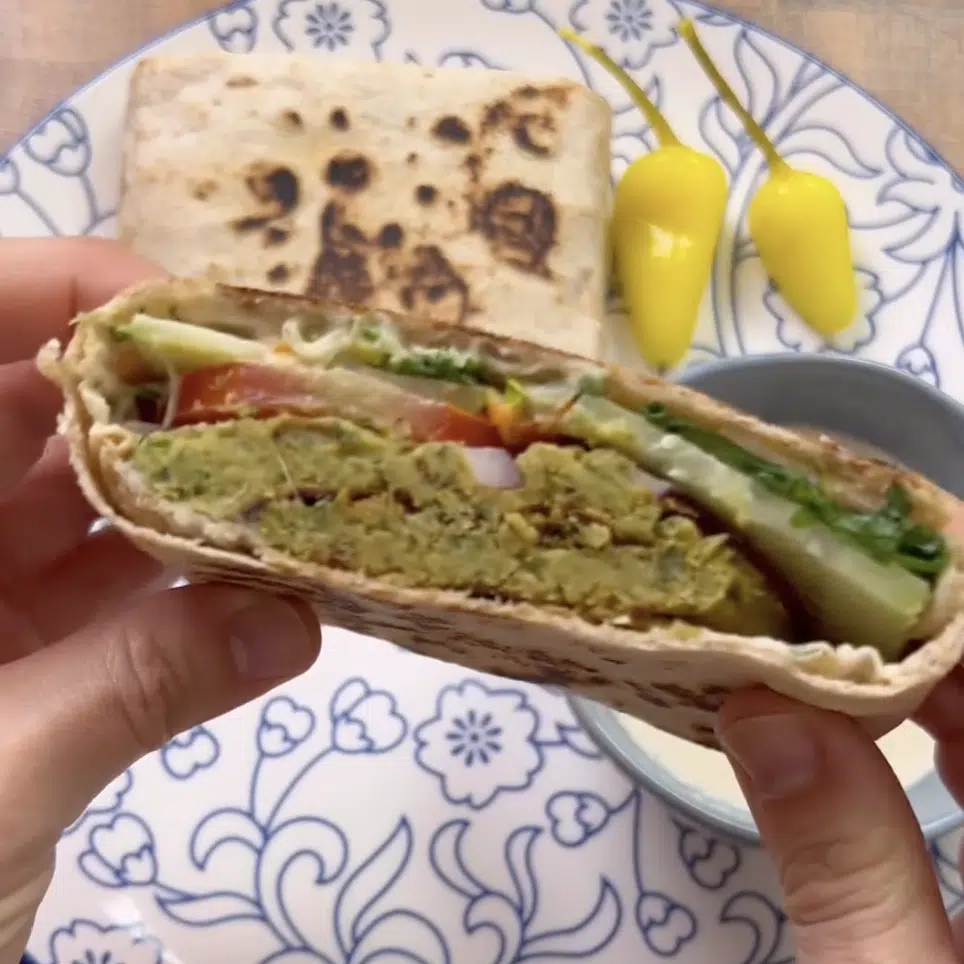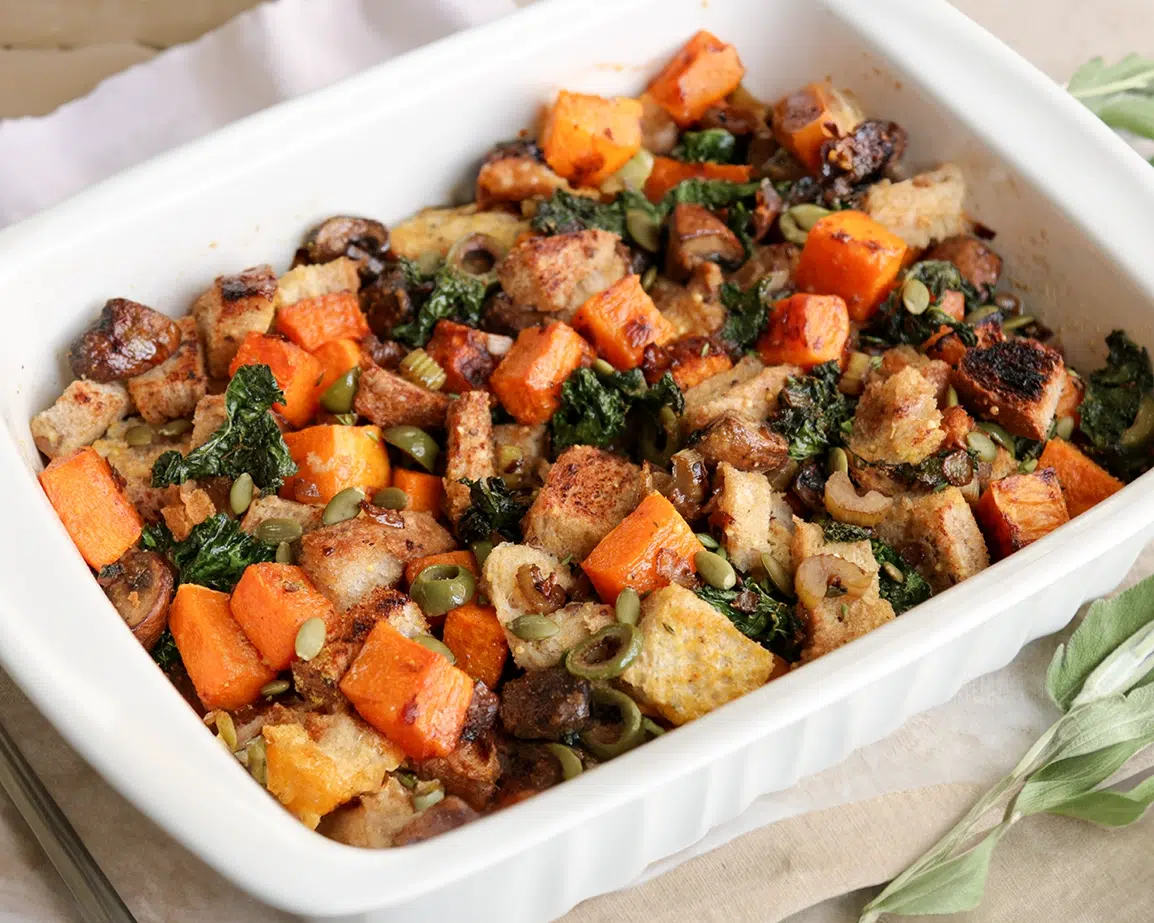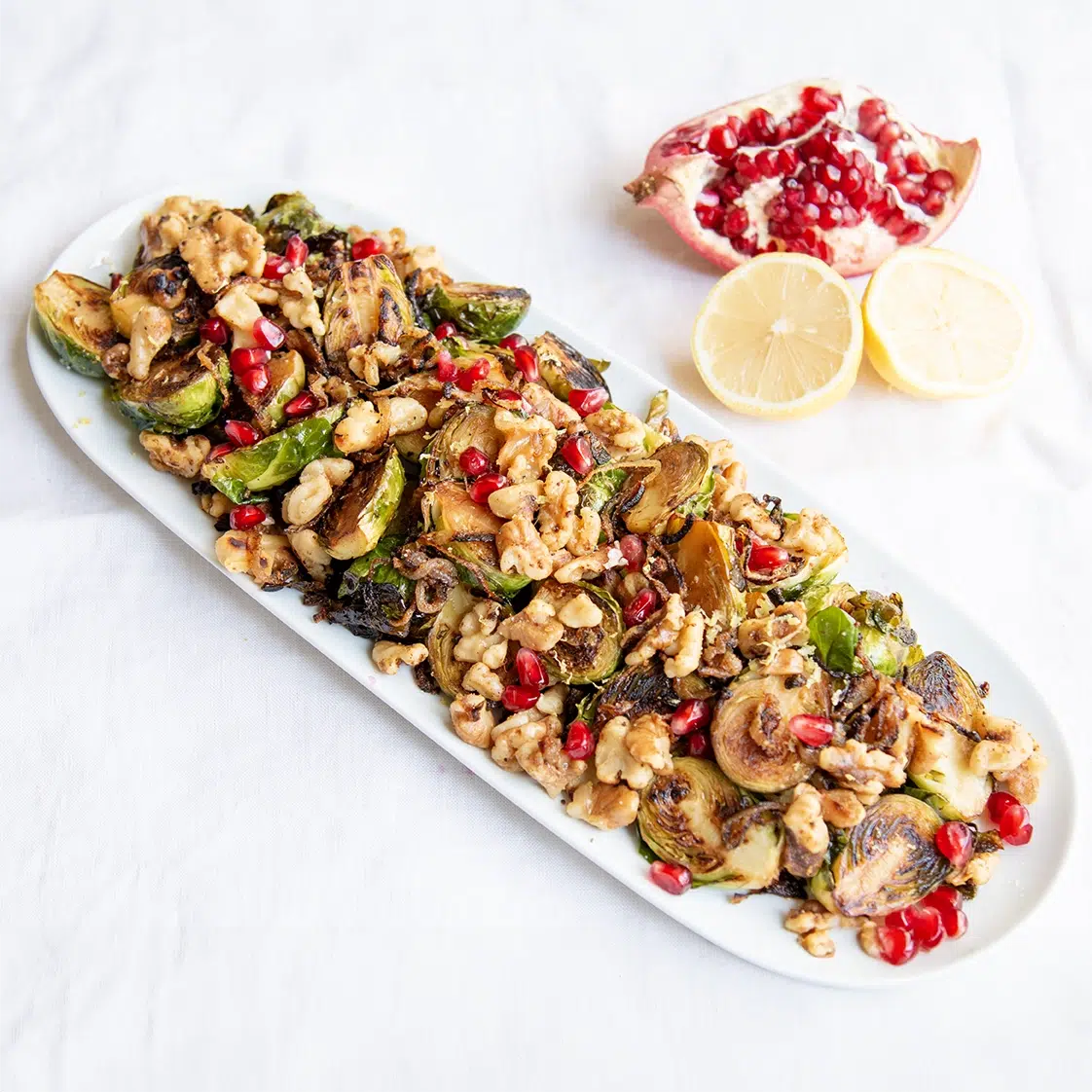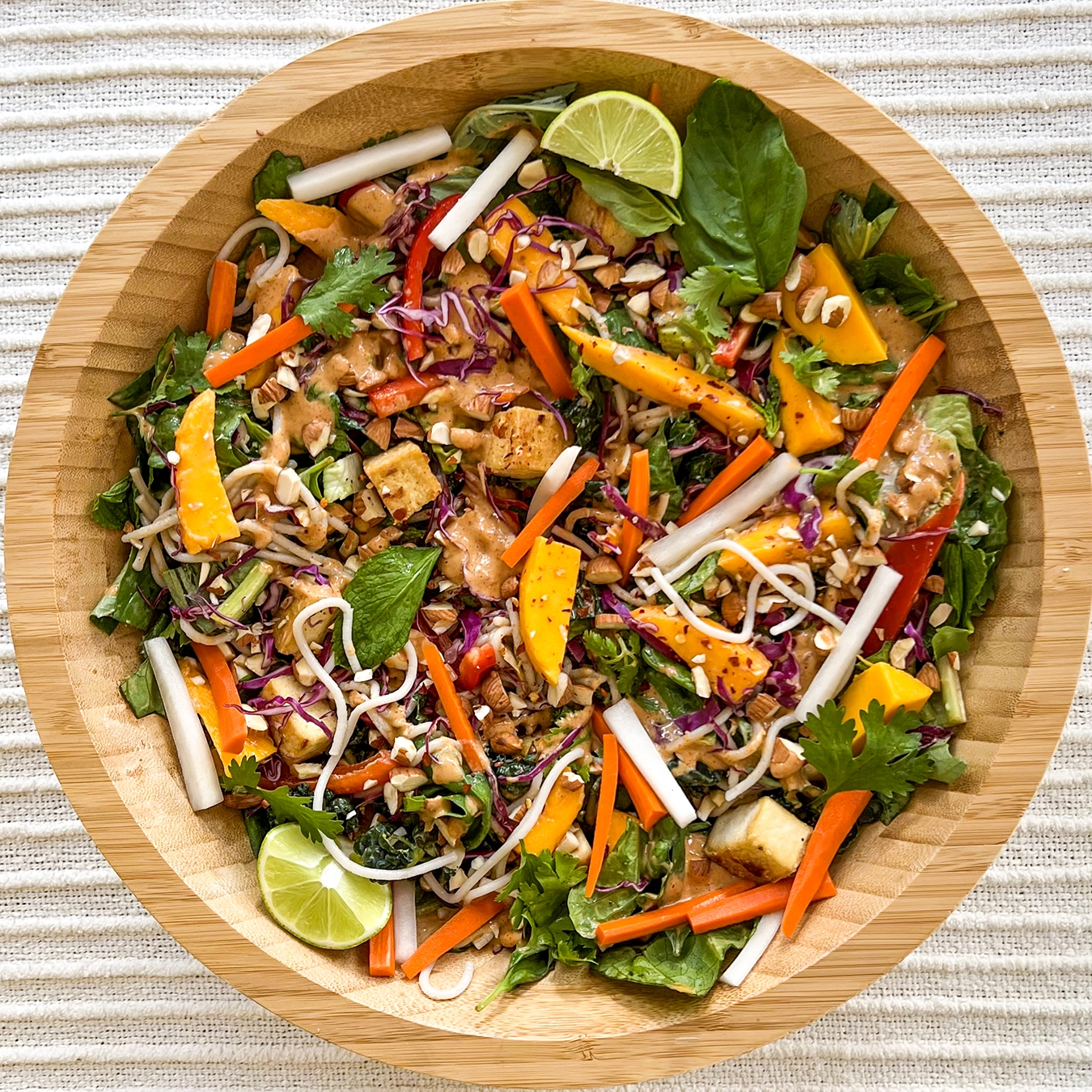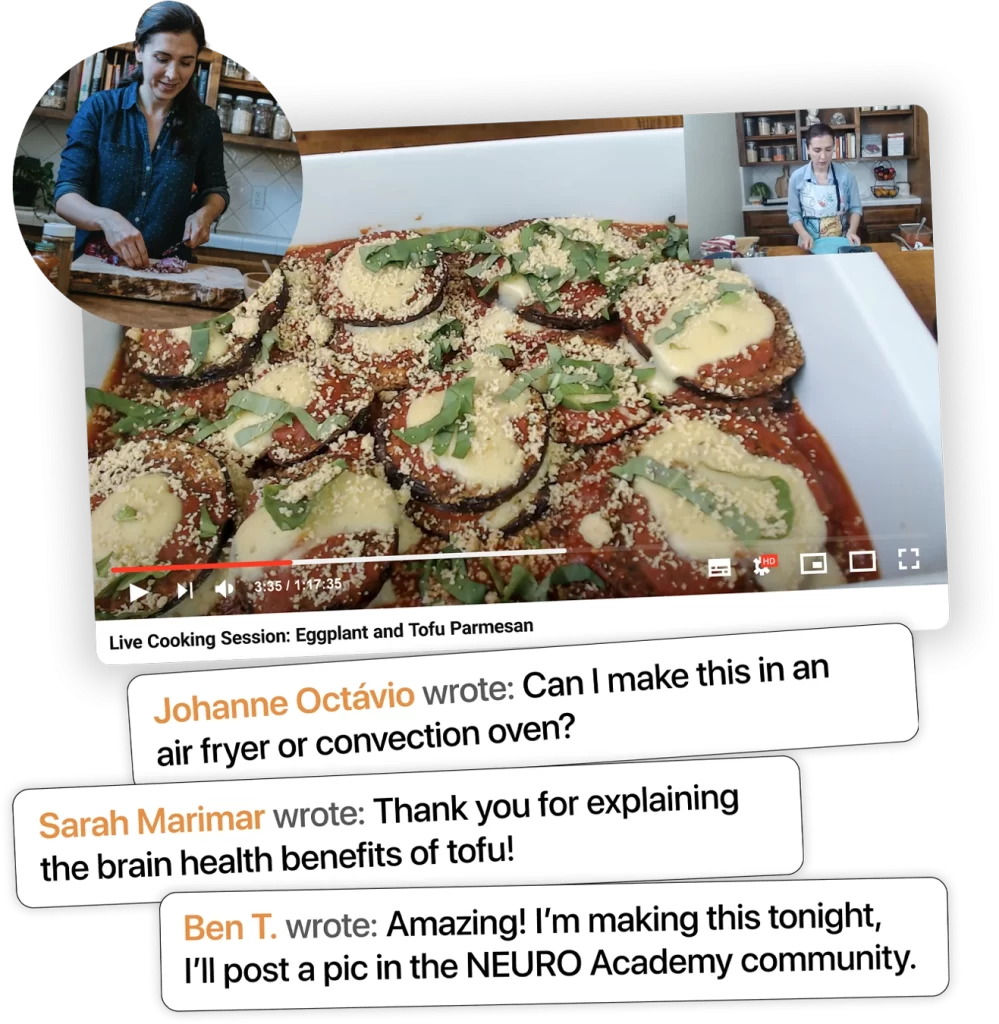A hearty holiday-ready cauli-mash recipe that’s good for the brain and great for sharing!
Takes 10 minutes to prep and 20 minutes to cook. A perfect winter-time comfort dish.
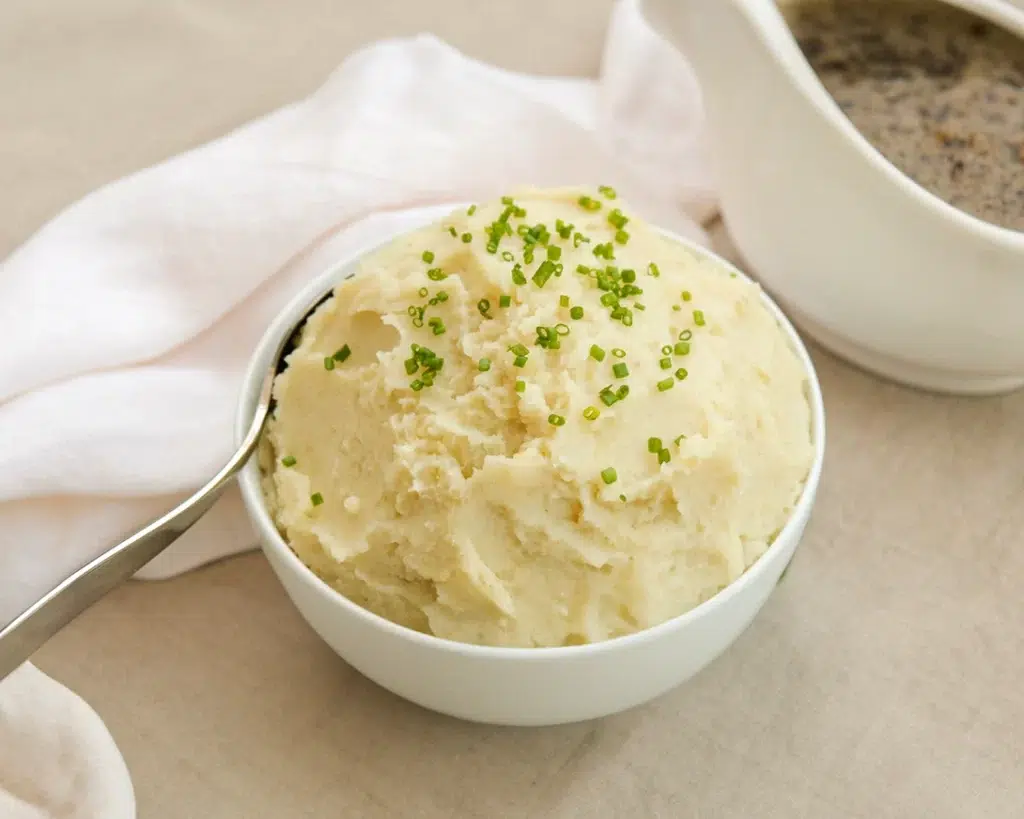
Ingredients
- 6 Yukon gold potatoes, peeled and cut into quarters
- Water to cover
- ½ head small cauliflower (chopped)
- 1 cup (about 240 milliliters) soy or almond milk
- 2–3 tablespoons extra virgin olive oil (EVOO)
- 3–5 cloves of garlic, minced
- 1 teaspoon EVOO
- ½ teaspoon salt
- Black pepper
- Fresh chives for garnish
How to make our Cauli-Mash Potatoes
In a large saucepan, cover potatoes with water and bring to a boil. Reduce heat to a low boil and cook until a knife inserted slide off easily.
In the meantime, add the cauliflower to a strainer or veggie steamer and place on top of the potatoes in the saucepan to cook at the same time. Cover with a lid to steam.
While the potatoes and the cauliflower soften, in a pan/skillet, add 1 teaspoon of EVOO and add the garlic and cook for 2–3 minutes, until the garlic is fragrant. Don’t burn the garlic as it will impart a bitter taste to the dish.
Once the potatoes and cauliflower are soft and cooked through, transfer to a bowl and mash with a potato masher, adding soy milk, EVOO, garlic, salt, and pepper. Set aside and cover to keep warm.
You can also change the proportion of the cauliflower and potatoes, e.g. 1 head of cauliflower and 3 potatoes.
Try serving with our cremini mushroom gravy (recipe here).
The brain science behind the recipe
Cauliflower is rich in antioxidants, including vitamin C and other compounds that have been known to help protect the brain from oxidative stress.
Potatoes provide complex carbohydrates, which are a good source of energy for the brain. They release glucose slowly, providing a steady supply of energy.
Plant-based milk (like soy or almond milk) can be a source of omega-3 fatty acids, which are a type of polyunsaturated fat. Our own study, ‘The Omega-3 Fatty Acids EPA and DHA in Brain Aging’, supports links between dietary omega-3 intake and a reduced risk of cognitive decline and dementia. Omega-3s also contribute to the fluidity of cell membranes, promote neuronal communication, and counteract inflammation. We wrote more about the relationship between brain health and good fats on our blog →
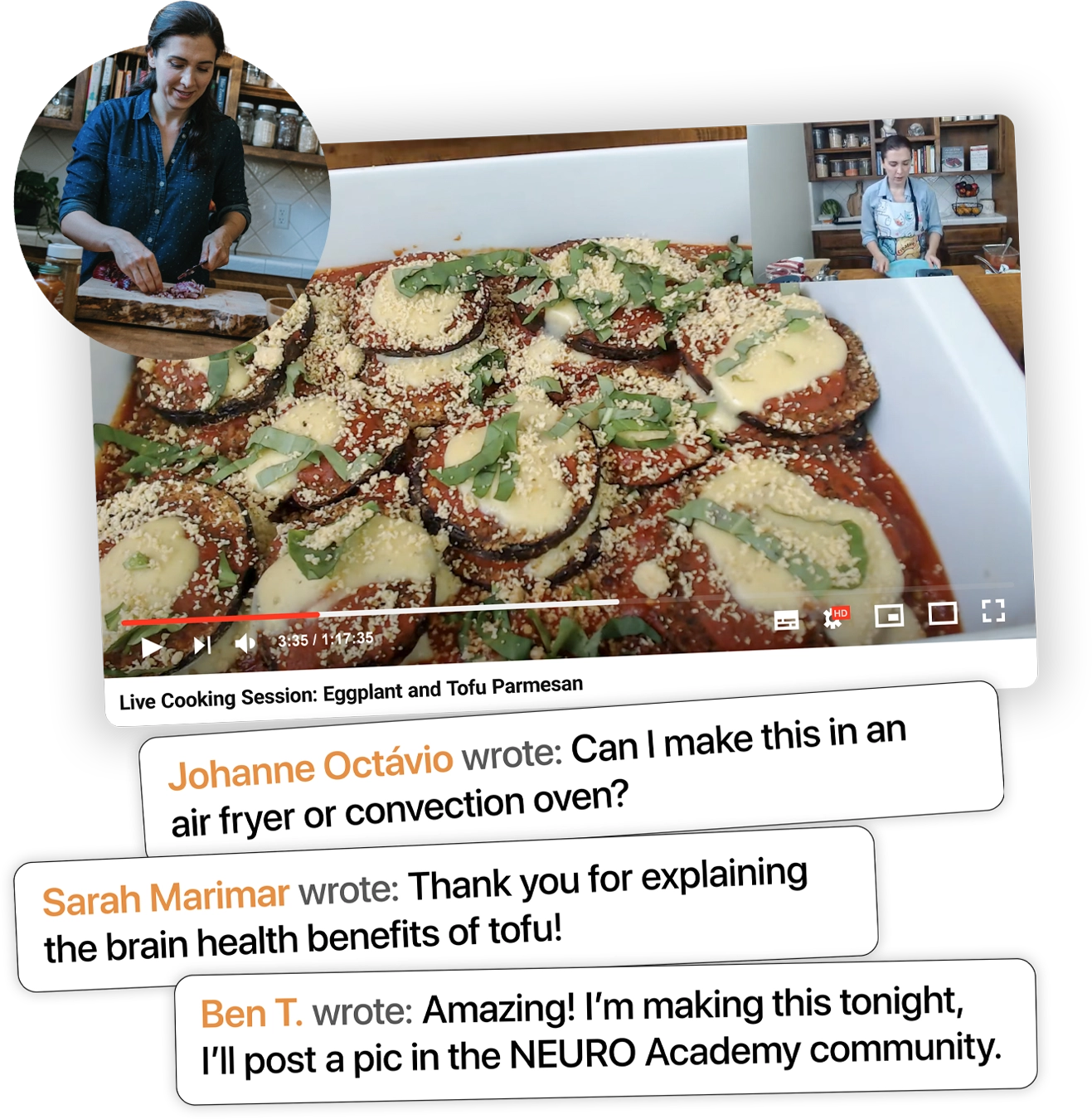
Join the NEURO Academy community to get exclusive access to Ayesha’s live brain-healthy cooking sessions.
- Ask Ayesha questions
- Learn about the brain health benefits of different foods
- Share your food photos in the NEURO Academy community, and exchange tips with other members!

Join the NEURO Academy community to get exclusive access to Ayesha’s live brain-healthy cooking sessions.
- Ask Ayesha questions
- Learn about the brain health benefits of different foods
- Share your food photos in the NEURO Academy community, and exchange tips with other members!
Get more brain-healthy recipes direct to your email inbox
Sign up for the Brain Docs newsletter for weekly recipes, brain teasers, neuroscience facts, podcast updates, and more — for free!

